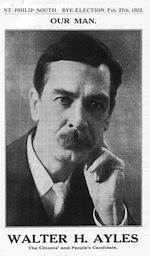Citizen Science: what makes an expert?
For March’s Science in the Pub (PubSci), Gail Austen, a PhD
student at the Durrell Institute of Conservation and Ecology, discussed Citizen
Science, asking “what makes an expert?”
Although “Citizen Science” is a new term, the practice goes
back a long way. Amateur, novice, non-professional and similar terms sound
pejorative, but Gail argued that practitioners can actually be very
knowledgeable and the important thing is that everyone is involved. There are
lots of different levels, from the wealthy amateurs of the 19th
century, like Darwin, to indigenous groups who have intimate knowledge of the
biodiversity of their localities. She showed a photo of a member of a hunter-gatherer
tribe holding a smartphone – yes, it certainly looked anachronistic but the
purpose was deadly serious – they use the phones to monitor poachers’
movements.
Gail argued that right back to the Industrial Revolution,
education has concentrated on producing people who met the needs of industry
and commerce and that ethos is still alive today, but what we need is fresh
perspectives. Gail gave Zooniverse as an example where a volunteer, Hanny van
Arkel, pointed out a galactic feature that no-one knew what it was and so
opened up a new area for research. Over 100 years ago Beatrix Potter was
knowledgeable about algae, to the extent that she had a paper read to the
Linnean Society – by her uncle, her being a woman. Websites such as iSpot, Ask a
Biologist and iNaturalist, include contributors who are not necessarily
professionals but are knowledgeable in their chosen field.
There are benefits and issues for both professional
scientists and enthusiasts. Academics have access to publications and tools that
the public doesn’t, whereas amateurs are free to pursue their own interests
without worrying about grant applications and suchlike. Observation records can
be very useful too. The National Biodiversity Network has data going back to
the 1600s, which can’t be used commercially but is a massive, free source of
information. However, some academics still query the robustness of the data.
There are now publications available to guide professionals in how to harness
the strengths of citizen science.
Gail herself came through the route of being an accountant
volunteering with the Natural History Museum, to chairing a local conservation
group (Kent Greater Crested Newts), to doing a PhD in citizen science. Her
research uses face recognition studies to examine how good people are at
recognition and the types of errors people make. How good are experts compared
with novices? How do training methods impact on accurate identification? Do we
see what we expect to see? Thoreau said: “it’s not what you look at that matters,
it’s what you see” – for example, it’s only religious people who see Jesus on a
piece of toast. Gail has found that people who know very little are much more
confident of their knowledge than people who have more experience – an example
of the Dunning-Kroeger effect. (Author’s
aside: This is something that explains an awful lot of what goes on in social
media – people who lack the skills or abilities for something are also more
likely to lack awareness of their lack of ability.)
This matters for species identification. In Kent there are malaria-carrying mosquitoes
and it’s vital to spot the right species. But if we do not know what species
exist, and how they interact, we cannot be accurate – but there aren’t nearly
enough professionals to cope with the information that’s there, not even what’s
being found in museum collections. The process of identifying a new species is
not straightforward, either. There are also observation effects – there are
lots more reports of rare species than common ones because people know they’re
rare.
Whatever information is gathered it will be of interest to
someone, somewhere. Non-structured observations can provide new information and
there are plenty of data, that could be used to predict changes and inform
policy, but it’s all over the place. Gail feels that what we need now is a
massive database to bring it all together but there isn’t the money to fund it.
PubSci is held on the first Wednesday of
every month, at 7pm, upstairs at the Old Kings Head, King's Head Yard, 45–49
Borough High Street, London SE1 1NA. Arrive early to take advantage of the
pub's Happy Hour.

